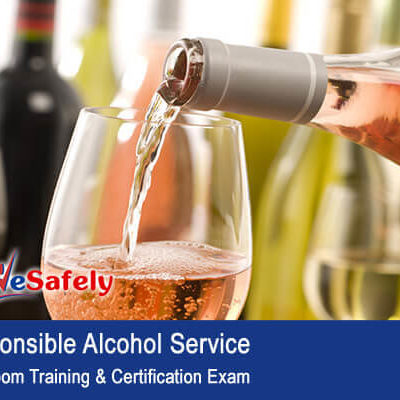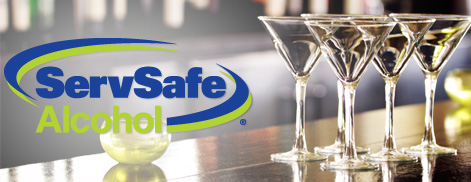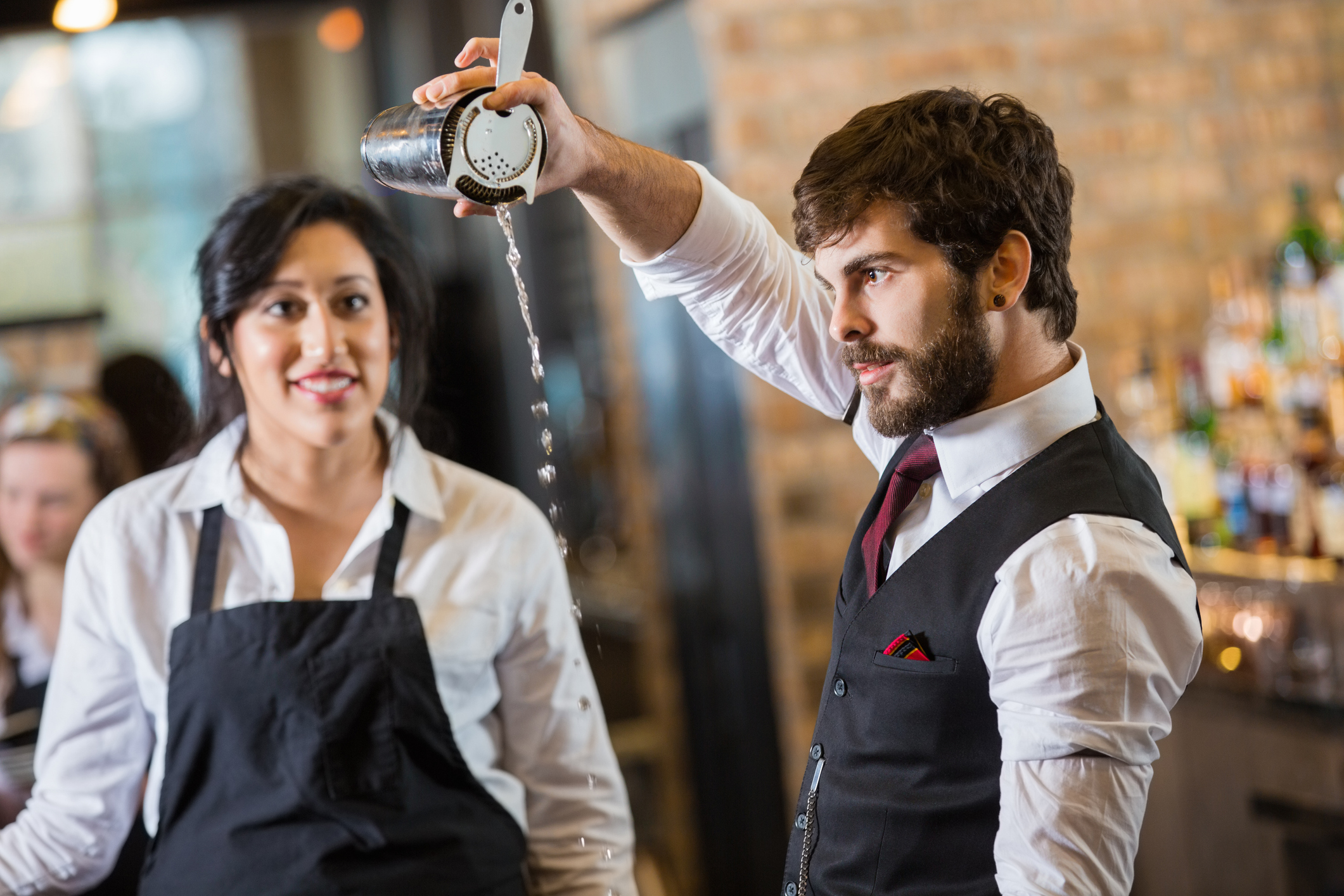Why You Need servsafe alcohol certification for Your Job in Hospitality
Why You Need servsafe alcohol certification for Your Job in Hospitality
Blog Article
Master Responsible Alcohol Solution With Comprehensive Accreditation Programs
The mastery of liable alcohol service is not simply a regulatory need; it is a fundamental component that enhances the reputation and functional stability of establishments within the hospitality sector. Comprehensive qualification programs provide invaluable understandings right into regional legislations, effective treatment strategies, and client interaction approaches. By buying these training campaigns, organizations can cultivate a society of duty among their staff, mitigating threats and improving customer fulfillment. The course to reliable implementation and its lasting advantages may not be as simple as it appears. What challenges exist in advance for those that seek to boost their service standards?

Importance of Liable Alcohol Solution
Liable alcohol service is important to advertising public wellness and security in facilities that serve alcohols. It incorporates a series of techniques made to stop the overconsumption of alcohol, reduce the threat of alcohol-related damage, and make sure a risk-free environment for patrons and team alike. By maintaining responsible service criteria, establishments can mitigate potential cases of intoxication, which might lead to crashes, physical violence, or other adverse results.
In addition, liable alcohol service improves the general consumer experience. Furthermore, facilities that adhere to accountable service methods often experience lower insurance costs and reduced lawful responsibilities.
In addition, carrying out responsible alcohol solution techniques aligns with broader public health efforts focused on minimizing drug abuse and advertising community health. This positive method not only shields specific patrons but also adds to a much healthier culture. Ultimately, liable alcohol solution is not simply a lawful obligation; it represents an ethical dedication to the well-being of clients and the community at large.
Secret Parts of Qualification Programs
Accreditation programs for accountable alcohol solution usually incorporate several vital components made to gear up staff with the essential abilities and expertise to offer alcohol securely. These programs typically include extensive training on local and state alcohol legislations, guaranteeing that participants comprehend their legal responsibilities and the effects of failing to abide.
One more important element is the recognition of indicators of drunkenness - servsafe food handlers card. Staff are educated to identify behavioral cues indicating when a customer may be over-served, allowing them to interfere appropriately
In addition, effective interaction methods are highlighted, showing team exactly how to engage with customers in a manner that promotes liable alcohol consumption. This includes training in dispute resolution techniques, enabling staff to take care of tight spots comfortably and professionally.
Moreover, programs frequently incorporate useful circumstances and role-playing exercises, providing participants with real-life examples to practice their abilities. Finally, recurring education and learning and sources are necessary for maintaining knowledge and abilities with time, as policies and finest techniques progress. With each other, these parts produce a comprehensive structure that empowers team to promote a more secure drinking environment while reducing responsibility for establishments.
Advantages for Personnel and Establishments
Personnel and facilities alike gain considerable benefits from taking part in accountable alcohol solution certification programs. For personnel, these programs improve understanding and abilities connected to alcohol check my blog solution, equipping them to identify signs of drunkenness and implement effective intervention techniques. This training not only cultivates a sense of confidence amongst employees yet likewise advertises a society of safety and security and duty in the office.
For facilities, spending in certification programs can result in reduced obligation and fewer occurrences connected to over-serving. By guaranteeing that personnel are trained in accountable solution practices, establishments can mitigate risks connected with alcohol-related cases, therefore shielding their online reputation and economic stability. Additionally, several territories supply motivations, such as reduced insurance policy premiums, for certified establishments.
Furthermore, executing licensed methods can enhance client satisfaction and commitment. Clients are most likely to go back to locations that prioritize their safety and well-being. Ultimately, a commitment to accountable alcohol service not just grows a positive setting yet likewise boosts the overall functional efficiency of establishments, making it a clever investment for long-lasting success in the hospitality sector.
Typical Challenges in Alcohol Service
Guaranteeing effective alcohol service is not without its obstacles, also in establishments committed to accountable techniques. One substantial challenge is the demand for staff to accurately assess patrons' alcohol usage degrees. servsafe food handlers card. This requires a keen understanding of how various variables, such as food consumption, tolerance, and private differences, influence drunkenness
Furthermore, the pressure to take full advantage of sales can contrast with responsible service protocols. Workers might encounter troubles in declining service to drunk individuals, specifically in social settings where peer pressure and expectations prevail.
An additional challenge is remaining updated with local laws and regulations pertaining to alcohol solution. Conformity is critical, yet constant modifications in regulation can produce complication and might bring about unintentional infractions.
Educating programs may not always cover the nuances of real-world circumstances, leaving personnel ill-equipped to manage complicated circumstances. Inconsistent communication in between administration and staff members relating to expectations for responsible solution can better aggravate these concerns.
To navigate these challenges effectively, facilities need to cultivate a setting of assistance, highlighting the value of accountable service while giving the helpful resources necessary tools and training for staff to be successful.
Steps to Get Qualification
To obtain Accountable Alcohol Service Accreditation, applicants commonly begin by investigating the details needs mandated by their local regulatory authorities. These requirements might vary considerably depending on the region, so it is vital to acquaint oneself with the relevant legislations and regulations.

After choosing a program, applicants must finish the site link requisite training, which generally covers topics such as identifying drunkenness, comprehending lawful responsibilities, and executing strategies for responsible solution. Individuals ought to actively involve with the material, as this understanding is crucial for efficient alcohol service.

Adhering to training, candidates normally take an evaluation to assess their understanding of the product. Effective completion of this analysis leads to qualification.
Final Thought
In verdict, mastering liable alcohol solution with extensive certification programs is important for advertising security and improving customer experiences within the hospitality market. By equipping staff with the required expertise and skills, establishments not just mitigate threats connected with overconsumption and lawful responsibilities yet additionally grow a culture of responsibility. This dedication to liable service inevitably results in increased customer loyalty and functional success, enhancing the relevance of continuous training and adherence to alcohol service standards.
Report this page